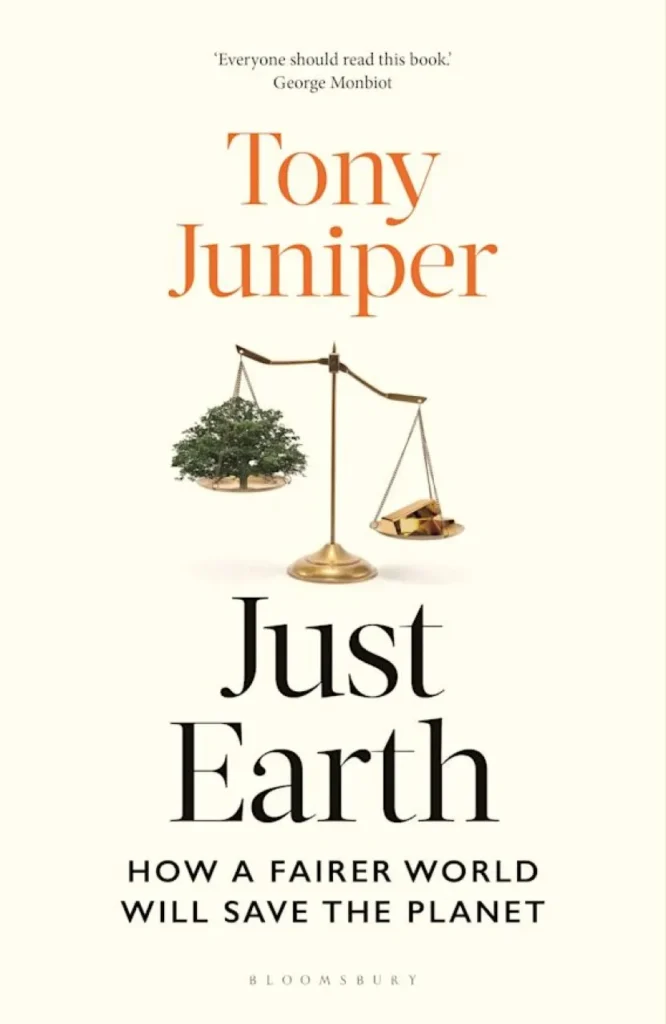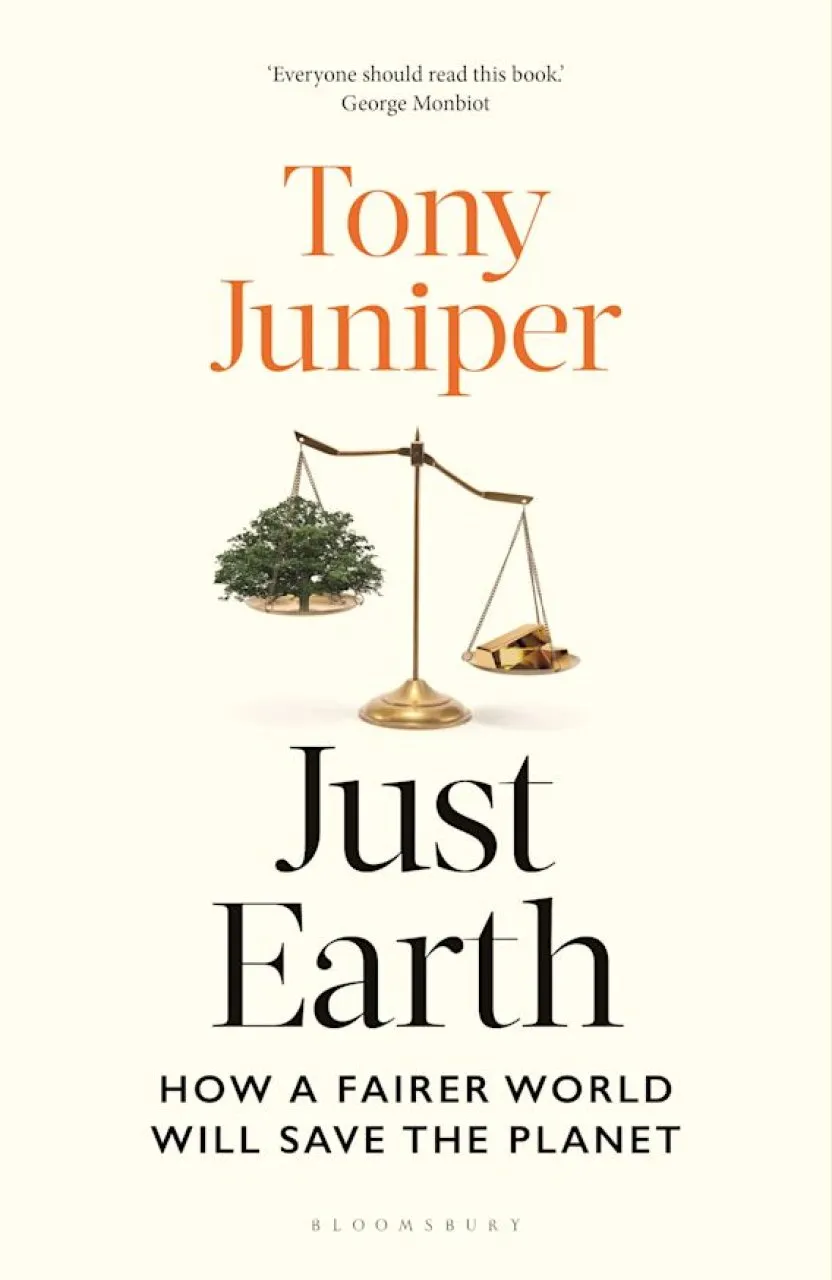Just Earth comes at a particularly unjust and unearthly time. Mounting inequalities and crystallising environmental crises characterise the present day, and this forms the basis of Tony Juniper’s two-fold argument. First, the crises we face are caused and worsened by the inequalities that pervade our societies, and to adequately address these crises, those very inequalities must be overcome. Second, the crises we face disproportionately affect those least responsible for their arisal – and this needs to be acted upon as a matter of justice.
Juniper’s argument, spread across 12 chapters, is big: it draws on a wide range of scholarship, conversations with topical experts, and his own extensive experience in the world of environmental policy at BirdLife International, Friends of the Earth, and Natural England. He touches on the origins of industrialisation, modern efforts – in the form of international climate treaties – to avert the crises we face, and the multifarious consequences of socioeconomic inequalities. The recounting of his exhaustion-induced collapse at negotiations for the 1997 Kyoto Protocol is accompanied by the sobering reminder of the deeply human consequences of climatic collapse: whether compromised livelihoods for smallholder farmers or communities’ displacement as a result of sea level rise.
The diverse forms of inequality, too, are examined: between geographies, genders, races, and generations, to name a few; and expressed both in wealth and income disparities and in gaps in educational opportunities. The discriminatory impacts of pollution are discussed in the contexts of Friends of the Earth’s Factory Watch in the UK – an early open-source pollution monitoring platform – and local communities’ efforts to combat timber extraction in Borneo.
Criticisms of iniquitous resource consumption, obsessions with uncritical economic growth (measured, importantly, by GDP) and the ‘false’, destructive, choice of cheap food and energy follow. Juniper emphasises the need to reconnect with the natural world, to challenge the narratives of consumerism and the status derived therefrom, and to provide compensation for those affected by the climate crisis. He also emphasises the need for the transition to a juster, earthlier, future to be just that — just: to take account of the impacts that the transition will have, whether in the form of resource extraction or otherwise.
Juniper spoils us with both a set of actionable recommendations and an overarching vision, the latter being that of ‘thrivalism’: of emphasising wellbeing over material wealth, of emphasising societal satisfaction over inanimate economic growth. This vision and its underlying arguments, though, require some mitigation.
Its historical allusions, linking contemporary socioeconomic inequalities to the early exploits of empire, are deeply teleological. The painting of colonialism and industrialisation as a singular, conjoined, process proves problematic too. Its contingent nature would have been worth exploring – causally linking a series of events in one century with a series of events in another should always come with a pinch of salt.
This teleological logic additionally applies to Juniper’s referencing of indigenous communities’ ecological wisdom. This appears throughout the book but is emphasised in its last chapter, falsely dichotomises ‘western’ and ‘indigenous’ cultures, and unduly monolithises the latter. This monolithisation disregards the innate diversity among and between indigenous peoples: their epistemologies vary immensely, and this, as explored by Shepherd Krech III and other scholars in the North American context, can serve to in fact emphasise their agency – either to exploit or not exploit the natural world. These rhetorical mitigations are particularly important as Juniper’s vision of ‘thrivalism’ partly depends on an epistemological revolution that taps into supposed indigenous wisdom.
Juniper’s critique of GDP as a measure of economic wellbeing could have used further analysis as well. This is particularly given his emphasis on the contrast between growth and (in)equality – efforts to reduce inequality can have a more positive effect on growth as the fiscal multiplier of redistributive government spending is stronger. Discussion of how recent growth has been more loosely correlated with carbon emissions, too, would have been a welcome addition.
These points, however, do not fault Just Earth’s broader argument. The book makes a convincing case for the inextricable relationship between our socioeconomic conditions and our climatic and ecological outcomes. Juniper infuses a typically scientific debate with genuine, heartfelt, humanity – more an economic-historical treatise than a product of environmental activism, it is a real call to arms.


